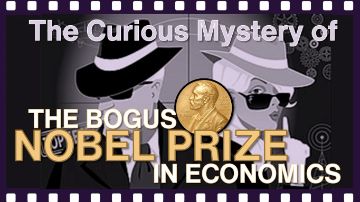
People often point out that our language should be simpler. Or the graphics neater. Or the call to action easier. Maybe we could at least "bring it down to 20 words per slide". I'm sorry, but the answer is no. Simplicity is not really what we are striving for.

It so happens that I was talking to a friend last week about this often-made request to "simplify" our thoughts about leadership. Even my friend was initially sympathetic to that request, until I explained that for us "Leadership is a profession". In our minds leadership requires mastery - attained through the combination of deep (theoretical) knowledge, seasoned expertise and the continual cultivation of character. Gaining such mastery is less about "making it simple" for the student of leadership, than about making it "safe" for its recipient. Our objective is to enable "good" leadership by developing practical wisdom, so that well-meaning and able individuals eventually can step into positions of power, fully qualified to serve their organizations and society.
My friend happens to be a former Royal Air Force fighter pilot. At this point he admitted: in fact, it is funny. Nobody would dream to call for the training of a heart surgeon, or a human rights lawyer, or an army general to be "simple". Why are we insisting on "simplicity" for the development of leaders?
Why indeed? And why is there - e.g. on social networks like LinkedIn - a continuous flow of unprofessional, oversimplified and unqualified opinions about Leadership, ranging from partial but thought-provoking to outright unintelligent? And why do people "like" them? Do we really believe leadership can be dissected into little soundbites of smartness, or five-step-to-success recipes? Do we think the hard work of becoming a good leader, if such a thing exists, deserves short-cutting? Do we feel better if we have the feeling that leadership remains easily in our reach?
And why do all those self-declared leadership "experts" - many of whom possess very little practical experience nor any sound theoretical understanding- constantly produce such charts?
It seems we are collectively in denial. We reify Leadership and project our desires for certainty and control into its discourse. In our postmodern world, full of anxiety and without simple answers, the container of leadership becomes a Kleinian "good object" to hold all our fears and hopes. And we cherish anyone who helps us sustain our fiction, and uncritically devour all that upholds the fantasy. By constantly hitting that "LIKE" button we are simply seeking to confirm ourselves.
This can never work. As Mats Alvesson so convincingly points out, in order to avoid functional (and dysfunctional) stupidity, we must examine closely what other discourses our leadership obsession crowds out. Here, I will argue, all those multicolored little inconspicuous charts collude in helping us to avoid the big questions: why are we here? What is the future we're leading towards? And who are we, qua humans? Who shall we become?
We shouldn't simply gloss over the many challenges of leadership and - in wilful blindness - celebrate our own ignorance. Instead, we must engage in active dialogue to explore all perspectives, especially those that stretch our understanding , beyond an ephemeral veil of certainty and Simon Sinek simplicities. There is no personal growth without effort, and no wisdom without dialectics.
As my friend suggests, we certainly wouldn't trust an inexperienced cardiologist to perform surgery of the open heart. Let's be careful then to heed amateurs and charlatans purporting inadequate solutions to operate the suffering heart of our society…
#leadership #transformation #personaldevelopment
It so happens that I was talking to a friend last week about this often-made request to "simplify" our thoughts about leadership. Even my friend was initially sympathetic to that request, until I explained that for us "Leadership is a profession". In our minds leadership requires mastery - attained through the combination of deep (theoretical) knowledge, seasoned expertise and the continual cultivation of character. Gaining such mastery is less about "making it simple" for the student of leadership, than about making it "safe" for its recipient. Our objective is to enable "good" leadership by developing practical wisdom, so that well-meaning and able individuals eventually can step into positions of power, fully qualified to serve their organizations and society.
My friend happens to be a former Royal Air Force fighter pilot. At this point he admitted: in fact, it is funny. Nobody would dream to call for the training of a heart surgeon, or a human rights lawyer, or an army general to be "simple". Why are we insisting on "simplicity" for the development of leaders?
Why indeed? And why is there - e.g. on social networks like LinkedIn - a continuous flow of unprofessional, oversimplified and unqualified opinions about Leadership, ranging from partial but thought-provoking to outright unintelligent? And why do people "like" them? Do we really believe leadership can be dissected into little soundbites of smartness, or five-step-to-success recipes? Do we think the hard work of becoming a good leader, if such a thing exists, deserves short-cutting? Do we feel better if we have the feeling that leadership remains easily in our reach?
And why do all those self-declared leadership "experts" - many of whom possess very little practical experience nor any sound theoretical understanding- constantly produce such charts?
It seems we are collectively in denial. We reify Leadership and project our desires for certainty and control into its discourse. In our postmodern world, full of anxiety and without simple answers, the container of leadership becomes a Kleinian "good object" to hold all our fears and hopes. And we cherish anyone who helps us sustain our fiction, and uncritically devour all that upholds the fantasy. By constantly hitting that "LIKE" button we are simply seeking to confirm ourselves.
This can never work. As Mats Alvesson so convincingly points out, in order to avoid functional (and dysfunctional) stupidity, we must examine closely what other discourses our leadership obsession crowds out. Here, I will argue, all those multicolored little inconspicuous charts collude in helping us to avoid the big questions: why are we here? What is the future we're leading towards? And who are we, qua humans? Who shall we become?
We shouldn't simply gloss over the many challenges of leadership and - in wilful blindness - celebrate our own ignorance. Instead, we must engage in active dialogue to explore all perspectives, especially those that stretch our understanding , beyond an ephemeral veil of certainty and Simon Sinek simplicities. There is no personal growth without effort, and no wisdom without dialectics.
As my friend suggests, we certainly wouldn't trust an inexperienced cardiologist to perform surgery of the open heart. Let's be careful then to heed amateurs and charlatans purporting inadequate solutions to operate the suffering heart of our society…
#leadership #transformation #personaldevelopment
Popular articles in the KnowledgeHub: Critical Thinking




 .
.